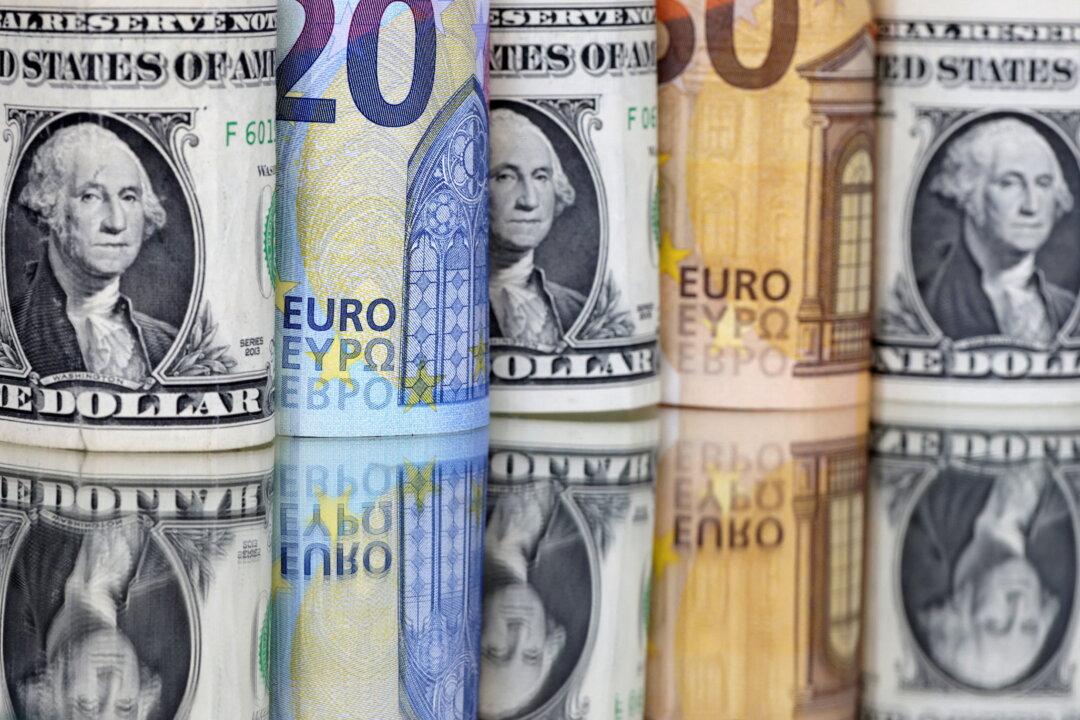SINGAPORE—The euro fell after the bloc’s business growth virtually stalled this month, as the dollar drew support from a bout of risk aversion on Friday and hawkish comments from global central banks, including the Federal Reserve.
The dollar index, which measures the currency against six others, was up 0.56 percent at 102.95, reversing three straight weeks of losses. The euro slid 0.85 percent to $1.0859, heading for its biggest one-day fall since March.





